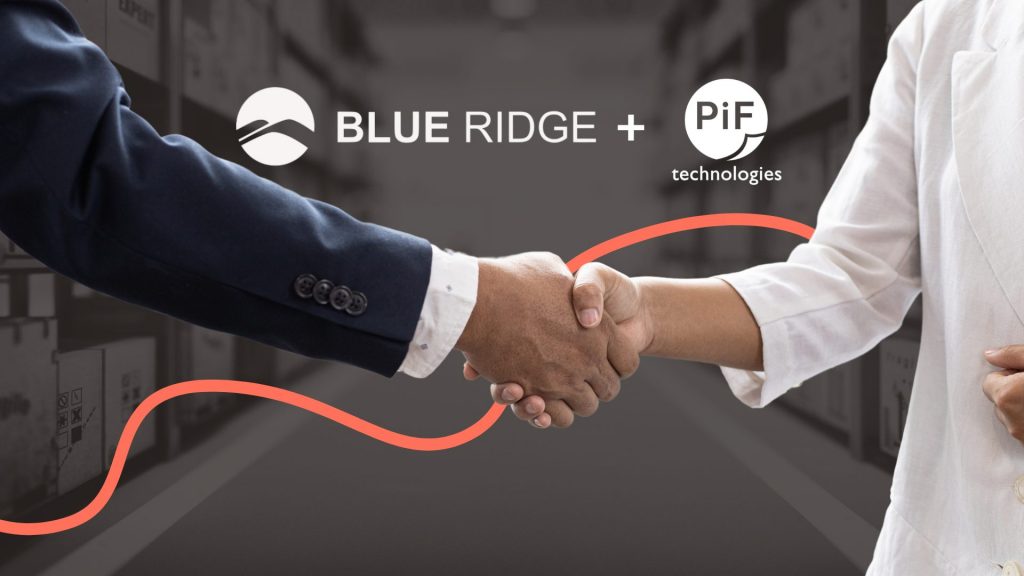Food and Beverage Manufacturers and Distributors face unique challenges within their industry, especially during more tumultuous economic times with many unknowns regarding costs, supply, and distribution capabilities. Identifying solutions that can help Food and Beverage Manufacturers and Distributors reduce costs, improve efficiencies, and remediate common frustrations within day-to-day operations is the key to long-term organizational success. This can best be accomplished through automation. While many businesses have turned to automation within their warehousing and manufacturing functions, they don’t realize that they can achieve similar benefits within their back-office operations as well.
Thanks to Robotic Process Automation (RPA) Food and Beverage Manufacturers and Distributors can revolutionize their operations and enhance their overall efficiency. RPA involves the use of software robots or “bots” (as well like to call them!) to automate repetitive and rule-based tasks by mimicking manual human actions and interacting with various systems and applications such as ERPs, HR Information Systems, or Inventory Management software.
The biggest benefit of automation across industries, departments, and job functions is the elimination of manual data entry. By removing human work from the equation, you can eliminate errors and expedite the processing time for invoices and other day-to-day processes. There are a few key functions for Food and Beverage Manufacturers and Distributors that can be specifically transformed with the addition of Robotic Process Automation to streamline their processes, improve accuracy, and reduce costs.
Specifically, software robots can handle data entry tasks within inventory management, order processing, and quality control with precision and speed, eliminating errors commonly associated with human manual data entry and minimizing downtime. Additionally, RPA allows manufacturers to reallocate human resources to more strategic and value-added activities, driving innovation and improving customer satisfaction.
The scalability of RPA enables manufacturers to handle fluctuating demands effectively while maintaining consistent performance. Ultimately, embracing Robotic Process Automation empowers Food and Beverage Manufacturers and Distributors to optimize their productivity, minimize operational risks, and achieve greater profitability in today’s competitive market.
Inventory Management
Inventory Management is a common challenge within the Food and Beverage industry, with inventory constantly changing, new product lines added, and other updates, it can be difficult to have an accurate image of exactly what products are in your inventory. Robotic Process Automation eliminates challenges commonly faced within Inventory Management to help increase visibility and expedite processes.
Because RPA eliminates the possibility of human errors in inventory management, software robots can precisely track inventory levels, update stock counts in real-time, and reconcile discrepancies between different systems. This accuracy helps prevent stockouts, overstocking, and order fulfillment errors, leading to improved customer satisfaction and reduced financial losses.
Real-time Inventory Visibility: Get accurate and up-to-date visibility into stock levels, item locations, and movement by tracking inventory across multiple systems and locations through automating data collection and consolidation. This real-time information empowers manufacturers and distributors to make informed decisions, optimize supply chain operations, and respond quickly to changing market demands.
Streamlined Replenishment Processes: Software robots can monitor stock levels, identify low inventory thresholds, and automatically initiate the replenishment process by generating purchase orders. This automation eliminates manual intervention, reduces fulfillment times, and ensures timely restocking, minimizing the risk of stockouts and production delays. RPA streamlines the entire inventory replenishment process, from generating purchase orders to supplier communication.
Efficient Demand Forecasting: RPA can integrate with other business systems, such as sales data and customer relationship management tools, to analyze historical data and predict future demand patterns accurately. By automating demand forecasting, manufacturers and distributors can optimize inventory levels, reduce carrying costs, and align production and procurement activities with market demand, resulting in improved operational efficiency and cost savings.
Seamless Inventory Auditing: Simplify and expedite the inventory auditing process. Software robots can reconcile physical stock counts with digital records, identify discrepancies, and generate audit reports automatically. This automation saves time, reduces the effort required for manual audits, and ensures greater accuracy in maintaining inventory integrity.
Order Processing
The needs of your customers are constantly changing, how can you adapt to updated consumer needs while ensuring that you maintain efficient processes.
Speed and Accuracy: Process orders with remarkable speed and accuracy like never before. RPA can extract order information from different sources, such as email, Electronic Data Interchange (EDI), or online ordering portals, and automatically enter the data into relevant systems, such as an Enterprise Resource Planning (ERP) system or order management system. This automation eliminates manual data entry errors, reduces processing time, and ensures that orders are promptly and accurately captured.
Order Validation and Error Handling: RPA bots can validate orders against predefined business rules, checking for errors, inconsistencies, or missing information. They can perform checks such as verifying customer details, validating product availability, and applying pricing and discount rules. In cases where errors or exceptions are detected, the bots can either flag the issue for employee review or initiate predefined corrective actions, minimizing delays and reducing the risk of processing incorrect orders.
Order Tracking and Status Updates: Automate the tracking of orders throughout the fulfillment process. Software robots can monitor the progress of orders, update their status in real-time, and generate notifications or alerts to relevant stakeholders. Robotic Process Automation provides customers and internal teams alike with timely visibility into order status, enabling proactive communication, and improving customer satisfaction.
Streamlined Order Fulfillment: RPA enables the seamless coordination of order fulfillment activities. Bots can automate the generation of picking lists, packing slips, and shipping labels, ensuring that the correct items are picked, packed, and shipped to the right destination. This automation reduces manual handling errors, expedites order fulfillment, and enhances the overall efficiency of the supply chain.
Integration with Customer Systems: Easily integrate with customer-facing systems, such as e-commerce platforms or Customer Relationship Management (CRM) systems. This integration allows for automated order syncing, ensuring that orders placed by customers on digital platforms are automatically captured and processed within the manufacturer or distributor’s internal systems. By eliminating the need for manual data transfer or rekeying in order information, RPA enhances data accuracy and speeds up order processing — meaning your customers get your product in their hands faster.
Quality Control
Your product is your most important asset, and maintaining consistent, high-quality product output is crucial for your business’ success. How can you ensure that every item exiting your doors maintains the same level of quality even as your output increases and your business grows? Thanks to Robotic Process Automation, every step in your production process can be monitored and tracked — including status & location — from the raw ingredients to the finished product.
Increased Accuracy and Efficiency: Improve the accuracy and efficiency of quality control processes. Software robots can extract data from various sources, such as sensors, measurement devices, or testing equipment, and automatically record the results in the quality management system. This automation minimizes data entry errors and speeds up the data collection and recording process, allowing for real-time and accurate monitoring of quality metrics.
Early Detection of Quality Issues: RPA enables the early detection of quality issues or deviations from desired standards. Software robots can continuously monitor production data, compare it with predefined quality parameters, and trigger alerts or notifications when discrepancies are identified. This proactive approach allows manufacturers and distributors to identify and address quality issues promptly, reducing waste, minimizing remediation efforts, and maintaining consistent product quality.
Regulatory Compliance: Meeting and maintaining regulatory standards and compliance requirements in the food industry is a constant effort. Software robots can automate the collection and analysis of data required for regulatory reporting, such as batch records, ingredient lists, and manufacturing process data. By automating these compliance tasks, RPA reduces the risk of non-compliance, facilitates audits, and simplifies the overall regulatory reporting process.
Traceability and Recall Management: Enhances traceability and recall management capabilities. Software robots can track and record product information, including batch numbers, expiration dates, and distribution details. In the event of a product recall or quality issue, RPA can automate the identification and isolation of affected products, expedite communication with relevant stakeholders, and facilitate the retrieval of product data for investigation and resolution.
Process Optimization: RPA enables data-driven insights and process optimization in quality control. Software robots can analyze quality data, identify patterns, and generate reports or visualizations that highlight areas for improvement. By automating data analysis and reporting, RPA empowers manufacturers and distributors to make informed decisions, implement corrective actions, and drive continuous improvement in quality control processes.
How to implement Robotic Process Automation for your Food and Beverage organization
As RPA becomes more and more well-known and accessibility to this technology increases, automating your processes is easier than ever. Thought leaders like Gartner and Forrester have provided readily available reports sharing the benefits and impact of the technology, which has led to widespread understanding and adoption. For organizations looking to implement Robotic Process Automation, it may be difficult to find a reputable partner and understand where to start.
When considering an RPA Consulting Partner, it’s best to gain an understanding of their expertise specifically regarding your industry and its challenges. PiF Technologies has been deploying RPA technology for more than 10 years and has many success stories for Food and Beverage Manufacturers and Distributors, such as Pine State Trading, a beer, wine, and snack distributor based in Maine.
If you’re ready to get started on your Robotic Process Automation journey, take the first step by completing the form below.







